| Documenting Systemic Human Rights Violations in Georgia |
Ministry of Foreign Affairs of the Czech Republic |
11.04.2025 - 30.06.2025 |
750 000 CZK |
Project Title: Documenting Systemic Human Rights Violations in Georgia
Donor Organization: Ministry of Foreign Affairs of the Czech Republic
Project Number: 1238-1/2025-MZV/TBIL
Project Duration: April 11, 2025 - June 30, 2025
Grant Amount: CZK 750,000
Main Objective of the Project
Documenting systemic human rights violations and the provision of legal assistance.
Project Summary
Based on the activities envisaged by the project, systemic human rights violations in Georgia will be documented, and local and international societies will be informed about the identified circumstances.
The project also envisages the provision of free legal assistance to victims of political repression in administrative cases.
Budget

Agreement
Grant agreement
|
Documenting systemic human rights violations and the provision of legal assistance.
View more →
|
| Supporting Peoples Right to Vote in Georgia |
Ministry of Foreign Affairs of the Czech Republic |
09.2024 - 12.2024 |
19 860 EUR |
Project title: Supporting Peoples’ Right to Vote in Georgia
Donor: Ministry of Foreign Affairs of the Czech Republic
Project Duration: September 2024 - December, 2024
Grant amount: CZK 500 000 (EUR 19,860.97)
Goal of the Project
Support the holding of free and fair parliamentary elections in Georgia.
Project summary
Georgian civil society organizations have formed a Coalition - "My Vote for the EU."
The Coalition aims: 1. to conduct a campaign - "My Vote for the EU" - before the elections; 2. to organize a large-scale observation mission which among other things includes a voter information campaign in the pre-election period, joint observation of the pre-election period and election day, protection of votes. The observation mission should cover all polling stations opened both in Georgia and abroad.
The project activities aim to contribute to the work of the Coalition, including through protecting the votes based on the litigation, and participation in the training of the observers.
Budget
| Category |
Amount in EUR |
| Salaries |
EUR 8,800 |
| Services |
EUR 11,060.97 |
| Total |
EUR 19,860.97 |
Grant Agreement
Grant agreement
|
Support the holding of free and fair parliamentary elections in Georgia
View more →
|
| Organizing the joint 5th International Conference: Access to State Archives in the post-Soviet Space |
The National Security Archive (NSA) at the George Washington University |
2024 |
$ 5,000 |
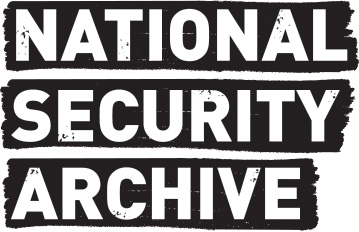
Project Title: Organizing the joint 5th International Conference: Access to State Archives in the post-Soviet Space
Donor: The National Security Archive (NSA) at the George Washington University
Budget: 5,000 USD
Duration: August 1, 2024 - December 31, 2024
Project Objectives:
- Organizing the joint 5th International Conference on Access to State Archives in the Post-Soviet Space to enhance public access to archival information, foster dialogue, document, compare, and evaluate future strategies for opening the Soviet archives.
- Fostering dialogue and strengthening social participation among scholars, archival researchers, educators, and non-governmental organizations' representatives on archival openness.
- Documenting and comparing recent trends and approaches in archival research and openness, focusing on Eastern European and post-Soviet countries, where significant changes have occurred due to the pandemic, war, and democratic backsliding.
- Evaluating future strategies to ensure archival openness, promote free access to archival institutions, increase participation in research and modern historiography, and combat disinformation and propaganda through the use of accurate, research-based historical sources.
Grant agreement
|
Organizing the joint 5th International Conference: Access to State Archives in the post-Soviet Space.
View more →
|
| Assessment of Digital Tools for Citizen Engagement |
DAI Global, LLC / USAID საჯარო მმართველობის პროგრამა |
2024 - 2025 |
GEL 99,995 |

Project Title: Assessment of Digital Tools for Citizen Engagement
Donor: DAI Global, LLC / USAID National Governance Program
Project Contract Number: 1005207-101
Total Budget: 99,995 GEL
Duration of the project: May 30, 2024 - February 7, 2025
This project aims to enhance the effectiveness and use of digital tools for citizen engagement. It addresses the lack of research on these tools and user experience by investigating their challenges and opportunities, ultimately providing recommendations for better technology utilization. This aligns with the USAID National Governance Program's goals of increasing government accountability and responsiveness, improving public service delivery, and facilitating citizen participation in decision-making.
The project will develop an assessment methodology and create a shortlist of digital tools for in-depth analysis. This includes gathering information from stakeholders and compiling an inventory of available tools. These tools will be mapped based on criteria, and widely used ones will be thoroughly assessed using a user-centered approach within the people-process-technology framework.
Data will be collected through online surveys to capture public feedback on satisfaction and experiences with digital tools. User experience testing will focus on the needs of vulnerable groups, and interviews with public and private sector individuals will provide additional insights.
The project team will conduct a comprehensive analysis based on the collected data, resulting in an evidence-based research paper with recommendations for public sector entities and other stakeholders. These recommendations will focus on strategies to enhance citizen uptake and utilization of digital tools.
The findings will be presented to stakeholders for discussion and feedback, ensuring comprehensive insights into the challenges and opportunities of digital tools. This collaborative approach aims to create more user-centered digital tools customized to users' needs in the long run.
Project activities include:
- Developing a methodology and creating a short list of digital tools for in-depth analysis (I month)
- Data collection (II-VIII months)
- Preparing the research paper (V-VIII months)
- Presentation of the research findings (VIII-IX months)
Contract
Grant agreement
|
This project aims to enhance the effectiveness and use of digital tools for citizen engagement. It addresses the lack of research on these tools and user experience by investigating their challenges and opportunities, ultimately providing recommendations for better technology utilization. This aligns with the USAID National Governance Program's goals of increasing government accountability and responsiveness, improving public service delivery, and facilitating citizen participation in decision-making.
View more →
|
| Digital Storytelling for Peaceful Coexistence |
The Civic Innovation Fund |
2024 |
€ 2,500 |
 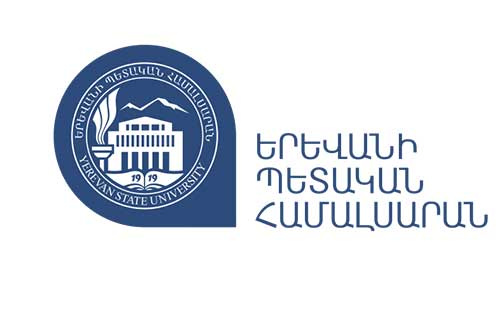
Project name: Digital Storytelling for Peaceful Coexistence (DSPC)
Donor organization: The Civic Innovation Fund
Leading organization: Yerevan State University (YSU) Center of Innovational Social Research
Organizations involved: The Institute for Development of Freedom of Information (IDFI)), and Slobodná škola Košice (Slovakia).
Total budget: 2.500 euros
Duration: 15.04.2024 - 30.06.2024
The DSPC project is a transformative initiative aimed at fostering empathy and promoting reconciliation among historically conflict-impacted communities.
By collecting and sharing personal narratives of individuals affected by wars and conflicts, the DSPC project seeks to bridge societal divides and inspire meaningful dialogues.
The project will produce a collection of oral video stories (a total of 5 videos from Georgia) that will challenge deep-rooted biases and promote a common understanding of the past. At its core, the project centers around a user-friendly digital platform where these diverse narratives will be hosted and made accessible to the public.
Grant agreement
|
The DSPC project is a transformative initiative aimed at fostering empathy and promoting reconciliation among historically conflict-impacted European communities.
View more →
|
| Common History, Common Future |
Civil Society Forum e.V. |
2024-2025 |
€ 18,465 |
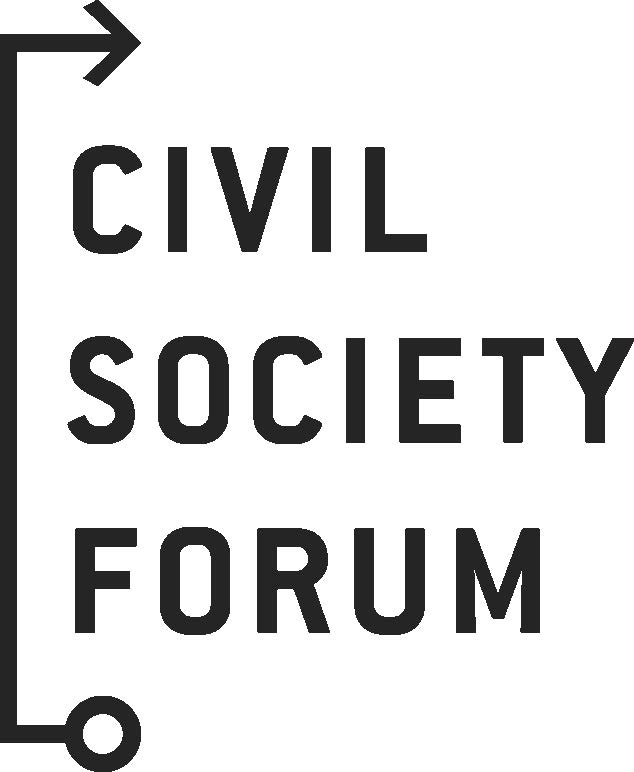
Project name: Common History, Common Future
Donor organization: Civil Society Forum e.V.
Total budget: 18,465 euros
Duration: 15.04.2024-25.02.2025
The Civil Society Forum e.V.'s Confronting Memories program gathers over 100 teachers from Armenia, Belarus, Georgia, Germany, Moldova, Poland, Russia, and Ukraine to collaborate on developing multi-perspective, competency-based teaching materials spanning from World War II to current conflicts. These materials, created through collective effort, are accessible for free download on the program's website.
The project aims for history teachers and educators to utilize the pedagogical guide developed within the Confronting Memories program in crafting teaching materials and lessons. They are encouraged to integrate the materials into their own classrooms, conduct lessons using the provided resources, and foster familiarity with the material among their colleagues.
Duties of IDFI are:
1) selection of 5-7 history teachers and educators (formal or informal education sector) to participate in the summer school;
2) participation in the workshop on July 17-21, 2024, in Dilijan, Armenia;
3) Facilitating and supporting selected teachers in conducting workshops for their colleagues;
4) Organizing a workshop for 20-25 international participants in Tbilisi in January 2025.
Grant agreement
|
The project aims for history teachers and educators to utilize the pedagogical guide developed within the Confronting Memories program in crafting teaching materials and lessons. They are encouraged to integrate the materials into their own classrooms, conduct lessons using the provided resources, and foster familiarity with the material among their colleagues.
View more →
|
| Assessing the accountability, transparency, and effectiveness of the institutions involved in the external oversight of covert surveillance |
The Netherlands Helsinki Committee within the scope of the European Union funded project |
2024 |
€ 11,995.20 |
 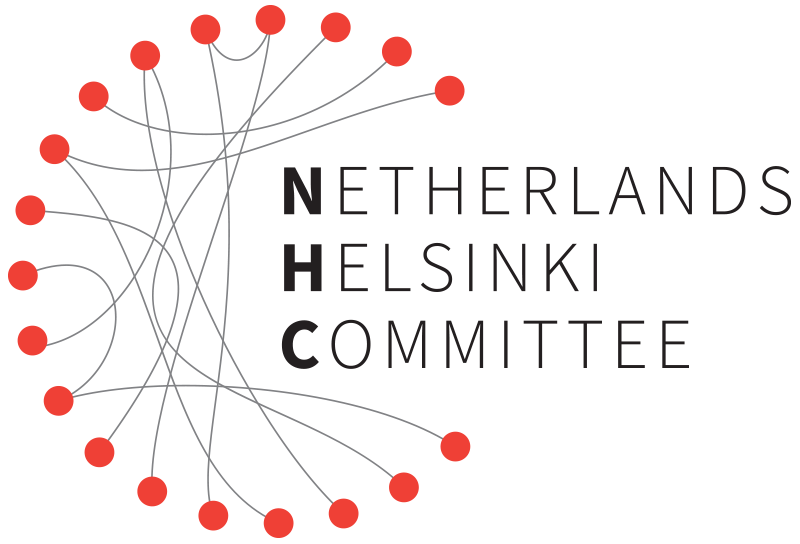
Project title: Assessing the accountability, transparency, and effectiveness of the institutions involved in the external oversight of covert surveillance
Donor: The grant is issued by the Netherlands Helsinki Committee within the scope of the European Union funded project - Strengthening Monitoring and Advocacy Capacities for Rights in Georgia
Duration of the project: 01.03.2024 – 31.07.2024
Grant amount: 11,995.20 EUR
Project goal: to assess the accountability, transparency, and effectiveness of the external oversight institutions (Common Courts, the Personal Data Protection Service, the Prosecutor’s Office, the Parliament of Georgia, and the Constitutional Court) in relation to their mandate to oversee covert surveillance by monitoring their performance for 2021-2023 years.
Project activities and timeline:
1. Development of the monitoring methodology – March 2024;
2. Find, study, and sort publicly available information on incidents related to covert surveillance - March-April, 2024;
3. Based on the monitoring methodology request of public information – March 2024;
4. Analysis of the received information and if necessary, request of the clarifying information – April-May, 2024;
5. Legal proceedings in response to the possible refusal, partial refusal, and/or inaction of public institutions in relation to the FOI requests – April-June, 2024;
6. Analysis of the findings of the monitoring in light of the international standards and recommendations and drafting of the report - May-June, 2024;
7. Public presentation of the report and its distribution on the organization’s website and social media channels – July 2024;
8. Preparation and distribution of the informative products on the organization’s website and social media channels – May-July, 2024.

Contract
The content of the information provided is the sole responsibility of the Institute for Development of Freedom of Information (IDFI) and it does not necessarily represent the position of the European Union.
Grant agreement
|
Project goal is to assess the accountability, transparency, and effectiveness of the external oversight institutions in relation to their mandate to oversee covert surveillance by monitoring their performance for 2021-2023 years.
View more →
|
| CSO Meter: Empowered for action |
European Union (EU); Civil Society Institute |
2024-2027 |
€ 6,720 |
Project Title: „CSO meter: Empowered for action”
Donor organization: European Union (EU); Civil Society Institute
Budget: 6,720.00 EUR
Duration: March 05, 2024 - December 31, 2027 (Terminated by mutual agreement in 2025)
Project Goal:
The aim of the project is to be engaged in the project-based regional hub and to upgrade the CSO Meter annual report.
Main Activities Envisaged by the Project:
- Allocation of an expert/experts within the hub organization, who will work on the issues covered by the project and will be responsible for the topic related to the project;
- Participate in local and international events of CSO Meter for capacity building and networking;
- Participate in the development of the annual advocacy plan, in the process of determining priorities and responsibilities;
- Participate in the development of monitoring, reporting and other analytical documents at the country level;
- Participate in the work process of the CSO Meter Advisory Board
- Update the CSO meter report
- Involve and discuss project-related issues within its competence
- Identify Early warnings for CSO meters according to relevant directions and provide information about them to the customer and other members of the hub;
- Disseminate the reports prepared within the framework of the project;
- Be engaged in advocacy activities with other members of the Hub.
Contract
Grant agreement
|
The aim of the project is to be engaged in the project-based regional hub and to upgrade the CSO Meter annual report.
View more →
|
| Public Policy Pilot Initiatives to Engage and Mentor Youth |
DAI Global, LLC / USAID National Governance Program |
2024-2025 |
GEL 215,922 |
Project Title: Public Policy Pilot Initiatives to Engage and Mentor Youth
Donor: DAI Global, LLC / USAID National Governance Program
Project Contract Number: 1005207-101
Total Budget: 215,922 GEL
Duration of the project: February 23, 2024 - February 22, 2025
Project Summary
Given the scarcity of high-quality research and policy documents concerning a range of governance reforms, the project aims to empower youth, students, and young professionals to become active contributors to the policymaking process through capacity building, sharing practical experience/best practices, and providing them a wide-range of opportunities to prepare and communicate evidence-based analyses and recommendations. This overall objective will be attained by:
-
increasing theoretical and practical knowledge and experience of students and young professionals in the field of good governance, including corruption;
-
fostering the availability of evidence-based policy analyses produced by young professionals through mentorships and capacity building;
-
encouraging government oversight activities and evidence-based discussions on crucial governance reforms with the participation of all relevant stakeholders.
Under the project, IDFI will expand the existing four academic modules/courses on a wide range of corruption and good governance issues integrated into the academic program of the Ilia State University. This expansion will provide additional opportunities (workshops, trainings, mentorships, Summer School on various governance issues, research methods, data analysis, data visualization, etc.) for undergraduate and graduate students, as well as the existing alumni network of these courses, students from other Universities, young professionals, and civil servants to further enhance their analytical skills. They will also be able to produce evidence-based policy papers and recommendations on various public policy issues through contests, scholarships, and mentorships, and to communicate them with all relevant stakeholders through social media campaigns and targeted outreach methods/activities.
National governance stakeholders will receive evidence-based analytical and policy papers produced by young professionals on a diverse set of governance issues. These papers can serve as valuable external analyses and assessments of ongoing reforms, highlighting significant achievements, identifying shortcomings, and offering specific policy recommendations to address observed gaps. In addition, the project will offer discussion and exchange opportunities between young professionals and other stakeholders on particular governance reforms.
Project activities include:
-
Coordination of courses of the Spring 2024 semester and admission/coordination of new students for the Fall 2024 semester and the provision of additional opportunities (I-XII months)
-
Update the existing anti-corruption portal (I-V months)
-
Contest of evidence-based analytical/policy papers (IV-X months)
-
Around 6 lectures / workshops in cooperation with partner Universities to encourage students to participate in the contest (IV-X months)
-
Online training sessions, as well as one-on-one mentorships on research methods, data collection, data analysis, data visualization, policy analysis, and policy documents design (IV-X month).
-
Presentation held in the format of public-private dialogue (X-XI month)
-
Paid internships/scholarships at IDFI or leading think-tanks for selected students/young professionals
-
Outreach activities (VIII-XII months)
-
Winter School on Good Governance (XI-XII month)
Contract
Grant agreement
|
Under the project, IDFI will expand the existing four academic modules/courses on a wide range of corruption and good governance issues integrated into the academic program of the Ilia State University.
View more →
|
| Digital Freedoms in Georgia - 2024 |
Internews and United States Agency for International Development (USAID) |
2023-2024 |
$ 24,783 |
Project Title: Digital Freedoms in Georgia - 2024
Project N: SG-GX2060-LP-125 m00
Donor: Internews and United States Agency for International Development (USAID)
Budget: 24,783 USD
Duration: November 29, 2023 – August 28, 2024
Summary of the Project
The project aims to strengthen Internet freedom in Georgia.
IDFI will implement the following activities as part of the project:
Activity 1: Capacity Building Material Creation. In order to raise awareness of people about emerging digital challenges, and new developments as well as to reach out more people, IDFI will prepare a video, informational brochure and online quizzes on digital safety issues.
Activity 2: To conduct 3 end-user trainings on digital safety topics - Based on the materials IDFI had prepared on digital safety as well as prepared videos, brochure and online quizzes as part of GIF supported local activities, IDFI will conduct a training on digital rights for students, journalists, CSO representatives and civic activists.
Activity 3: To publish 2 blog posts on digital rights. As a follow up of previous analytical work conducted under GIF supported local actions, IDFI will prepare two blog-posts on the most pressing digital challenges, developments and needs in the sphere of digital freedoms (including surveillance, online content moderation or digital safety in Georgia). Blog-posts might also follow up the topics of our previous studies/reports in order to assess new developments and changes as well as to what extent our recommendations were considered by various stakeholders.
Activity 4: Plan, organize and execute a digital rights workshop. To communicate our observations made and recommendations elaborated in our blog-posts as well as to follow-up our recommendations, voice the challenges we observed over the past years under GIF local activities, IDFI will hold a workshop with the participation of all relevant stakeholders (e.g. several public institutions, CSOs, business sector, technical community) to discuss emerging digital threats, our recommendations on protecting digital rights in Georgia and necessary steps to be taken in the coming years.
Activity 5: Plan, organize, and execute a digital rights awareness-raising/advocacy campaign – With the use of all prepared awareness raising materials, IDFI will implement an awareness raising/advocacy campaign online, during which IDFI will widely disseminate prepared video, informational brochure and online quizzes on digital security and digital rights issues. The aim of the campaign will be to raise awareness of online users about digital challenges and get more people familiar with digital hygiene tips and tools.
Contract
Grant agreement
|
The project aims to strengthen Internet freedom in Georgia.
View more →
|
| History education at the time of war |
Civil Society Forum e.V. |
2023 |
€ 1,500 |

Project title: History education at the time of war
Supported by: Civil Society Forum e.V.
Overall Budget: 1,500.00 EUR
Project Number: №CM106_GE_2
Duration: 28.11.2023 - 31.12.2023
Project Objective: the IDFI will be responsible for the coordination of translating the Toolkit produced by the Confronting Memories programme from English into Georgian.
The obligations of the IDFI are as follows:
a) Coordinate the translation and proofreading of the Toolkit (ca. 17,000 words) from English into Georgian with external service providers.
b) Communicate and coordinate with service providers (translator, proofreader, and designer) to finalise the Toolkit for publication.
c) Bind the toolkit in accordance with the designer’s template.
Budjet
Contracts
Grant agreement
|
Project Objective: the IDFI will be responsible for the coordination of translating the Toolkit produced by the Confronting Memories programme from English into Georgian.
View more →
|
| Increase the access of media to public information in Georgia |
Embassy of the Netherlands in Georgia |
2023-2024 |
GEL 213,161 |
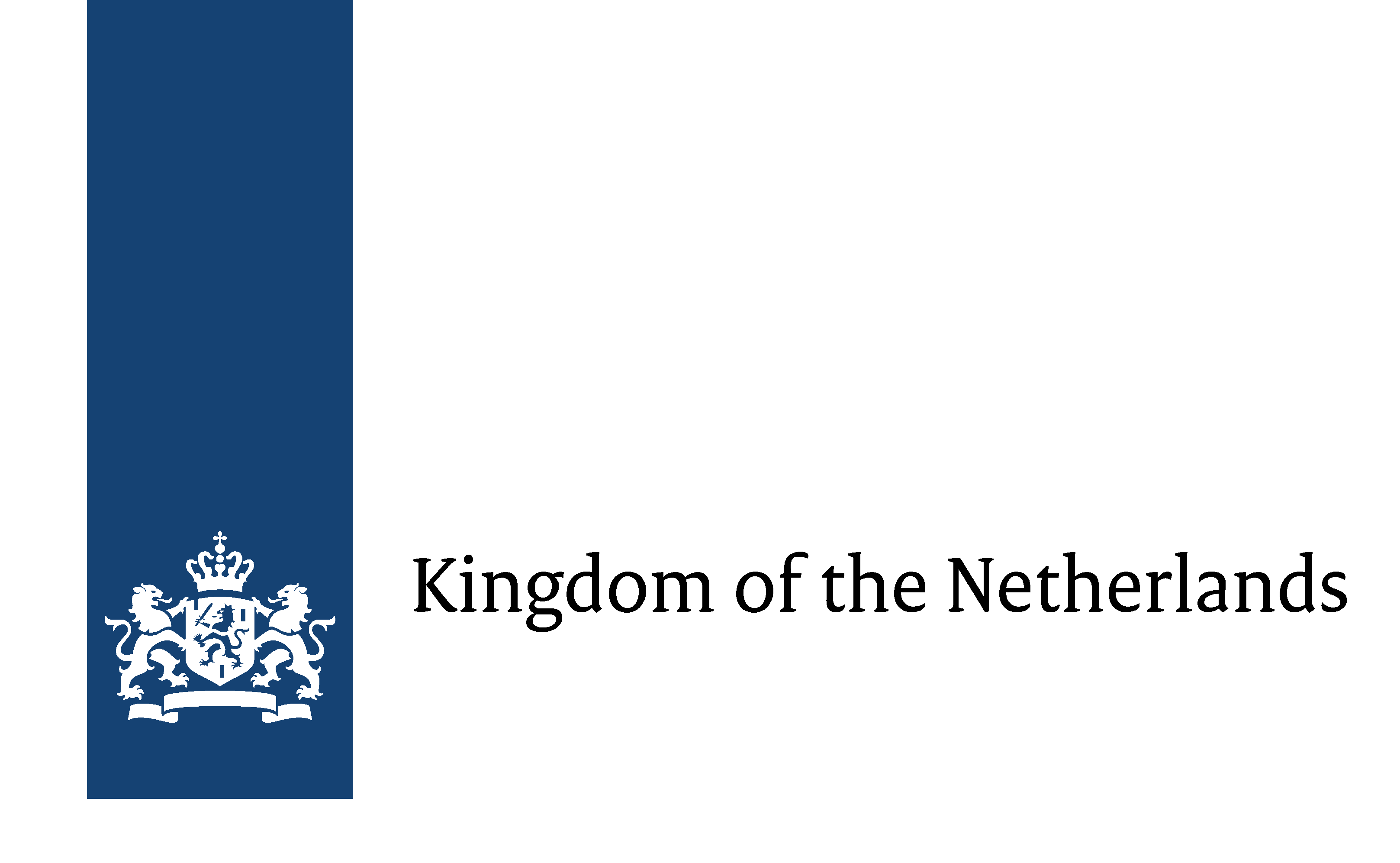 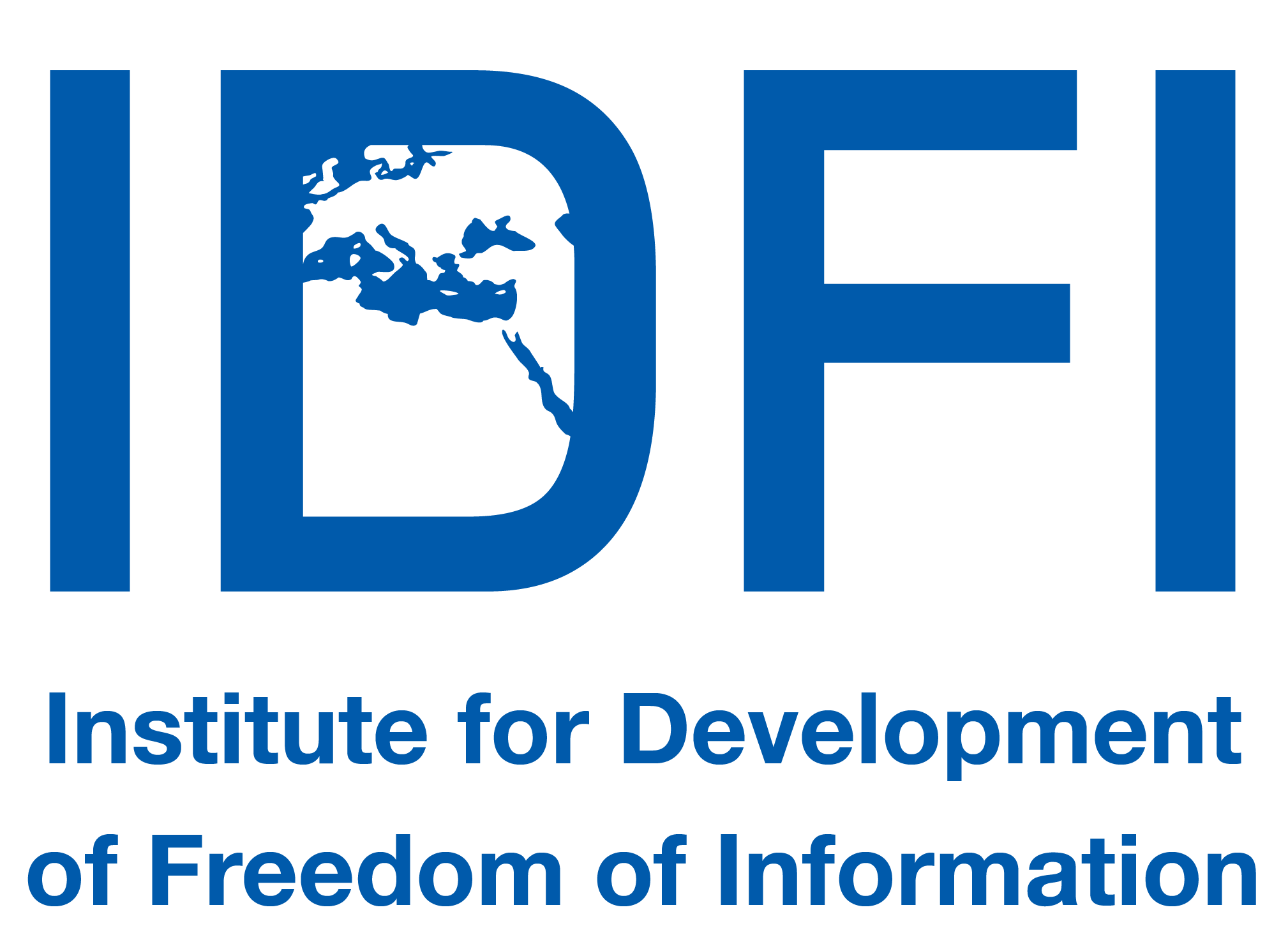
Project title: Increase the access of media to public information in Georgia
Donor: Embassy of the Netherlands in Georgia
Project number: 4000006932
Project Duration: 1 September, 2023 – 30 November, 2024
Grant amount: 213,161 Gel
Project summary
The project's goal is enhancing and supporting evidence-based journalism, particularly during the pre-election period, and combat systemic legal and practical challenges in accessing public information.
The objectives of the project are to enhance journalists' access to public information, reduce systemic legal obstacles in public information accessibility. To achieve these objectives, the project team will provide full legal and professional aid to journalists. Furthermore, project team will strengthen their proficiency in requesting public information.
Main objectives the project
A) Supporting evidence-based journalism by increasing access of journalists to public information;
B) Addressing the systemic challenges of accessibility of public information in Georgia.
Budget
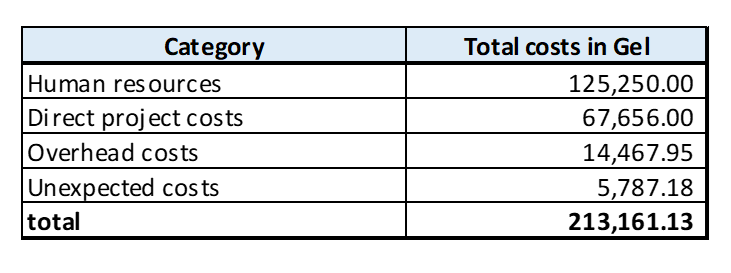
Project Activities
Contract
Grant agreement
|
The project's goal is enhancing and supporting evidence-based journalism, particularly during the pre-election period, and combat systemic legal and practical challenges in accessing public information.
View more →
|
| Global AI Advocacy Subgrant: Georgia |
Global Partners Digital |
2023-2024 |
€ 3,256 |
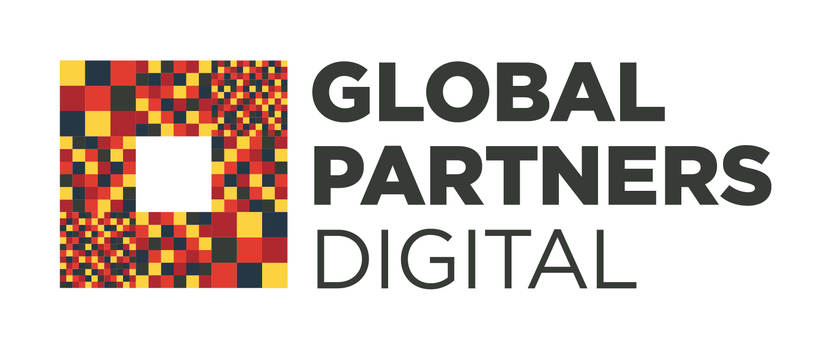
Project Title: Global AI Advocacy Subgrant: Georgia
Donor Organization: Global Partners Digital
Total Budget: EUR 3,256.59
Duration of the Project: May 01, 2023 - March 14, 2024
Project Summary
Project goal is to promote a human rights approach to artificial intelligence by shaping the
outcomes of relevant international debates.
Sub-project goal is to contribute to the implementation of the project strategy by directly engaging and advocating within identified global processes to ensure a human rights approach to AI
In collaboration with GPD, the Institute for Development of Freedom of Information will implement the project's global advocacy strategy and engage in advocacy efforts at the identified forums to ensure a human rights approach to AI in identified global processes.
For the duration of the project, Institute for Development of Freedom of Information will engage in the below forums and processes, with the aim of ensuring a human rights-respecting approach to AI.
The Institute for Development of Freedom of Information may also engage in other ad hoc opportunities subject to their interest and capacity.
- Council of Europe’s Committee on Artificial Intelligence: Convention on Artificial Intelligence
- United Nations Secretary General’s Envoy on Technology: Global Digital Compact
- United Nations Human Rights Council
Specifically, the partner will will take on the following responsibilities and engages:
- Strategy Implementation
- Review global mapping developed by GPD and provide input on forums identified for direct advocacy under the project
- Identify at least 2 forums and/or processes for advocacy engagement under the project
- On the basis of the updated global advocacy strategy, engage in the designated forums and/or processes and implement the activities outlined in the strategy.
Engagement may include, but is not limited to:
- participation in consultations with civil society;
- development of analysis, joint statements, and/or responses to relevant policy outcomes and texts adopted by relevant policy forums; or
- engagement in direct advocacy with relevant policy makers
- articulating policy positions through the use of strategic communications
Contract
Grant agreement
|
Project goal is to promote a human rights approach to artificial intelligence by shaping the outcomes of relevant international debates.
View more →
|
| Open Government Data (OGD) Survey |
Deloitte Consulting LLP, a contractor to the United States Agency for International Development (USAID) for The USAID Economic Governance Program |
2024 |
GEL 63,104 |

Project Title: Open Government Data (OGD) Survey
Donor: Deloitte Consulting LLP, a contractor to the United States Agency for International Development (USAID) for The USAID Economic Governance Program
Project Contract Number: G-2305-01788
Total Budget: GEL 63,104
Duration of the project: July 10 - January 9, 2024
Project Background
International practice shows that businesses are reaping tremendous value from both data created through businesses’ economic activities and data shared by governments. The World Bank’s latest report entitled - Data for Better Lives - identifies major benefits of open government data (OGD) for business: quality improvements; cost reduction and process optimization; production innovation; more effective intermediation and lower transaction costs. Nevertheless, the economic aspect of open data has been neglected, and the private sector in Georgia lacks information and opportunities to utilise open data for economic growth. The project aims to address the underutilization of open government data (OGD) from the perspective of the broader open data ecosystem, since the Country has low scores in Open Data Use and Impact indicators according to the Global Data Barometer report, indicating a lack of practical use cases and engagement from the private sector and academia.
Project Objectives and Activities:
- Elaborate an overview of the baseline of the economic aspect of the OGD ecosystem in Georgia;
- Develop a survey methodology to identify high-impact and high-potential sectors for utilising open data, including the identification of high-impact and high-potential sectors for open data usage;
- Conduct surveys among target populations in Tbilisi and seven larger cities ((Batumi, Gori, Kutaisi, Ozurgeti, Rustavi, Telavi, and Zugdidi) to gather data on open data usage and needs;
- Analyse the survey results and prepare a report summarising the findings;
- Facilitate a public-private dialogue (PPD) on open government data to foster collaboration and address barriers; fostering stakeholder engagement from the private sector and academia.
Budget
Contract
Grant agreement
|
Elaborate an overview of the baseline of the economic aspect of the OGD ecosystem in Georgia;
View more →
|
| Global Index on Responsible AI: Regional Research Hub |
Rerearch ICT Africa |
2023-2024 |
$ 54,470 |

Project Title: Global Index on Responsible AI: Regional Research Hub
Donor: Research ICT Africa
Total Budget: 54,470 USD
Duration of the project: July 1, 2023 - December 31, 2024
Background
The Global Index on Responsible AI (GI) is a project of Research ICT Africa (RIA) and the Data for Development Research Hub (D4D.net), supported by the International Development Research Centre (IDRC).
The Global Index is a new rights-based tool being developed to support a broad range of actors in advancing responsible AI practices. It is intended to provide a comprehensive, reliable, independent, and comparative benchmark for assessing progress toward responsible AI in countries across the world. The Global Index will bolster the capacity of governments, civil society organisations, and other stakeholders in upholding rights-based responsible AI principles by providing research and data to foster accountability, develop more precise policy interventions, refine best practices, and encourage regional and international cooperation.
To assess each country against Responsible AI indicators, there will be a global task team on primary data collection. 120 countries are involved in the survey and each country is assessed by one national researcher. These national researchers will be selected, co-trained (along with the Global Index core team) and supervised by the Regional Hubs, which will be responsible for the quality of the collected evidence and its assessment in the GI survey tool.
Institute for Development of Freedom of Information (IDFI) serves as the Regional Research Hub in Georgia covering 12 Eastern European and Central Asian countries and is expected to engage with the GI core team across the following phases of the GI first edition.
The major activities of the project include:
- Phase 1: Pilot the GIRAI survey and team building - March-August 2023
- Phase 2: Establish the research network and data collection for the full study - September-December, 2023
- Phase 3: Data analysis for global report and dissemination - December 2023- November, 2024
IDFI will be engaged to complete the following activities:
- engage with the GI Steering Committee;
- provide inputs on methods and indicators;
- verify the regional relevance of indicators;
- recruit and train regional team leaders;
- recruit and co-train country researchers;
- oversee the primary data collection process;
- ensure that national researchers have a common understanding of core concepts of the survey;
- provide support in regional consultations;
- provide support in piloting instruments in the region;
- oversee country researcher data collection;
- write regional analyses for the Global Index report;
- attend all scheduled meetings as necessary;
- provide necessary information, making timely decisions and taking action so as not to hold up the project; and take part in and organize dissemination activities.
Contract
Grant agreement
|
It is intended to provide a comprehensive, reliable, independent, and comparative benchmark for assessing progress toward responsible AI in countries across the world.
View more →
|
| Providing the International Conference – “Uncovering the Truth: Mass Graves of the Great Terror (1937-1938) in Batumi, Georgia” andthe joint publishing of the book on the victims of the great terror in Adjara |
Juliusz Mieroszewski Centre for Dialogue, Poland |
2023-2025 |
€ 42,200 |
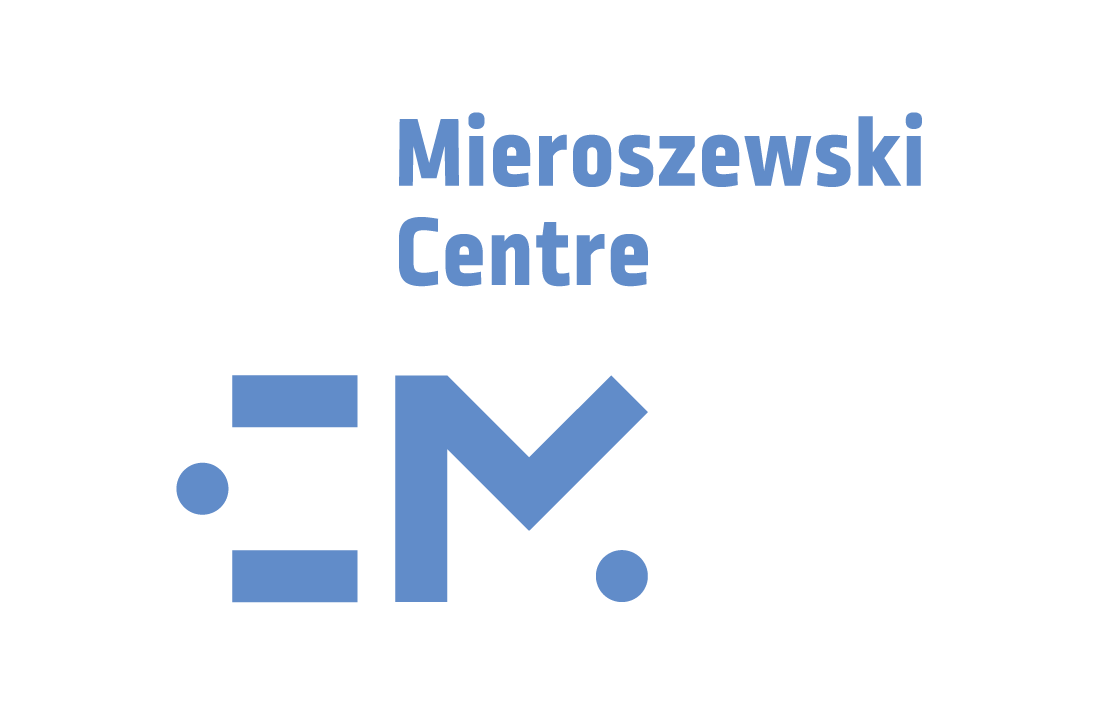
Project title: Providing the International Conference – “Uncovering the Truth: Mass Graves of the Great Terror (1937-1938) in Batumi, Georgia” and the joint publishing of the book on the victims of the great terror in Adjara
Supported by: Juliusz Mieroszewski Centre for Dialogue, Poland
Overall Budget: 42,200.00 EUR
Duration: 10.07.2023 - 31.05.2025
Project Objective:
The project aims at the correct and precise examination of the Soviet past as a cornerstone of proper rethinking of its wrongdoings, and crimes against humanity and Actively introducing them to the wider public in Georgia and abroad.
Today, the manipulation of historical narratives is primarily directed toward Ukraine, Poland, and Eastern Europe, serving the larger context of the war launched in Ukraine. However, Central Asian countries, Georgia, and Armenia are also periodically targeted. Historical revisionism serves as a catalyst for the Kremlin's geopolitical interests, including aggressive foreign policy and populist nationalism. By downplaying Russia's historical wrongdoings, exaggerating its achievements, and grossly falsifying facts, the Kremlin aims to mislead both domestic and international audiences.
The aim of the project is to understand the Soviet past from the perspective of the first mass graves of the victims of the repressions of 1937-1938 discovered in Adjara. To achieve this, a conference will be planned with the involvement of leading scientists working on the issue. The goal is to facilitate an exchange of ideas so that steps can be formulated for further study of the mass graves and raising public awareness. Additionally, the project aims to publish the first "Book of Remembrance" in Georgia. This book will include brief biographical data of all people repressed in Adjara, alongside scientific articles.
Activities:
- Organizing an international conference about the first mass graves discovered in Adjara in October 2023.
- Preparation and publication of the book on the victims of the great terror in Adjara, in the Georgian language containing scholarly articles and biographies of victims of political repressions in a total of 300 copies.
- Presentation of the book and holding of open lectures in higher education institutions, schools, and libraries.
Initial Budjet and Activities
Amendments to the contract - 06.03.2024
Amendments to the contract - 31.05.2024
Ongoing activities and budget
Contract
Grant agreement
|
The project aims at the correct and precise examination of the Soviet past as a cornerstone of proper rethinking of its wrongdoings and Actively introducing them to the wider public in Georgia and abroad.
View more →
|
| Overcoming Barriers to Combat Disinformation in Ethnic Minority Communities |
NATO Public Diplomacy Programmes/Division |
2023 |
€ 7,000 |
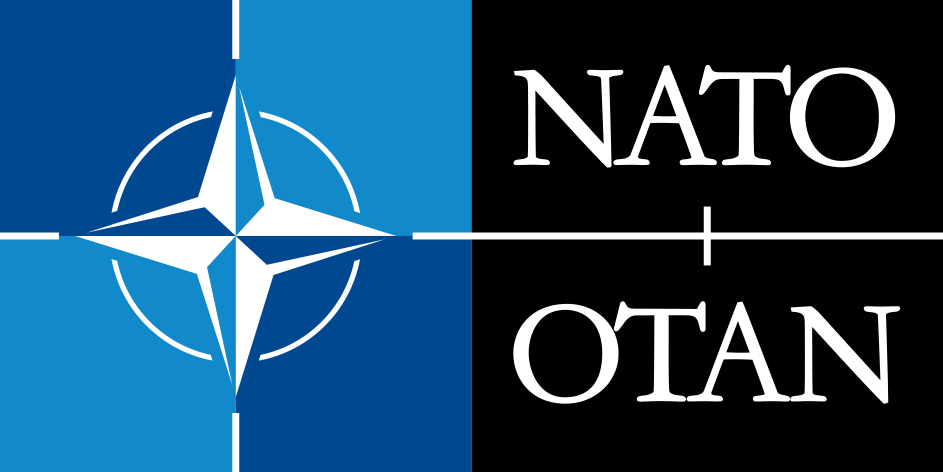
Project title: Overcoming Barriers to Combat Disinformation in Ethnic Minority Communities
Donor: NATO Public Diplomacy Programmes/Division
Project number: 221026c
Project Duration: June 2023 - December 2023
Budget: EUR 7000
Project summary: Armenian and Azerbaijani communities in Georgia are among the most vulnerable communities to disinformation, particularly regarding NATO, which may be due to language barriers predominantly exposing them to Russian media outlets rather than Georgian or European. This project aims to combat this, especially among young ethnic minorities (ages between 16-25) through workshops, social media campaigns and utilising traditional and local media outlets to spread factually accurate information about NATO during this project and beyond. The IDFI aims to reach 90 Armenians (predominantly from the Samtskhe-Javakheti region) and 90 Azerbaijanis (predominantly from Kvemo Kartli) in person through lecturers, experts and trainers who are well-versed in Georgian, Armenian and Azerbaijani, and 20,000 people via the videos that will be created and spread on social media and local news outlets.
Main outputs: 3 training sessions, 3 workshops, 2 videos.
Project Objectives:
- To address anti-NATO sentiment and the lack of knowledge amongst ethnic minority communities in rural areas of Georgia.
- To combat feelings of being sidelined from Georgian society and the benefits that Georgia receives from NATO.
- To raise the resilience of ethnic minority communities against disinformation and increase awareness of NATO and its mission in Georgia.
Project activities:
Activity Number 1- Creating videos that will debunk disinformation about NATO and raise awareness of NATO’s role and mission in Georgia spread by local influencers and through social media accounts.
Activity Number 2- Conducting training sessions in disinformation, misinformation, propaganda and ways to confront it for local communities. This will take place in local NGOs, schools, American Corners and civic centres.
- Activity Number 2 - Stage 1- Training the trainers by experts and lecturers in the topics mentioned above.
- Activity Number 2 - Stage 2- Training the locals, consisting of 3 training sessions in each region by students and locals in their mother languages.
Activity Number 3 - Conducting interactive and accessible workshops held by experts and lecturers addressing specific cases of disinformation and how to counter it.
Follow-up Activities to ensure the projects sustainability-
- 1. Videos created can be continually used in the future. 2. Keeping in contact with participants. 3. Continually engaging participants with the University of Georgia programmes and internships within the IDFI.
- Qualitative and Quantitative forms of assessing the success of the programme - Number of sessions delivered, attendance levels, the extent of the spread of the videos and social media content and verbal feedback given by attendees and trainers.
Budget and Activities
Grant agreement
|
Project Objectiv is to address anti-NATO sentiment and the lack of knowledge amongst ethnic minority communities in rural areas of Georgia.
View more →
|
| Advancing the capacity of CSOs and the Media in the field of Freedom of information and freedom of speech |
Czech Republic – Ministry of Foreign Affairs,Czech Republic’s Official Transition Promotion Program |
2023 |
CZK 399,993 |
 
Project title: Advancing the capacity of CSOs and the Media in the field of Freedom of information and freedom of speech
Donor: Czech Republic – Ministry of Foreign Affairs,Czech Republic’s Official Transition Promotion Program
Project number: 20-23GE01
Project Duration: April, 2023 – October, 2023
Grant amount: CZK 399 993
Project summary
In order to facilitate the application of the ECHR case law in national jurisdiction and promote free speech and freedom of information, the pressing legal questions stemming from the existing administrative practice and case law regarding the freedom of information, freedom of speech and freedom of media will be documented. Working meetings aimed at mapping the main challenges will be organized and held with CSOs, independent lawyers and media representatives who are actively engaged in handling the cases related to freedom of Media, Freedom of Speech and Freedom of expression. Research of the ECHR (and ECJ as well if required) case law will be conducted in order to study the legal standards that are applicable to legal challenges specific for Georgia. Digital manual of newest case law of the ECHR regarding the freedom of information, freedom of speech and other rights that fall under the scope of Media freedom will be prepared and free access will be provided.
Main objective of the project
Facilitating the application of the ECHR case law in national jurisdiction and advancing the standards of free speech and freedom of information.
Project activities
1. Disseminating information about the project through the website and social network;
2. Conducting meetings with the relevant stakeholders
3. Drafting and publishing at least three legal blogs/articles regarding the legal standards of the ECHR;
4. Preparing and publishing three visual materials (infographics) regarding the project;
5. Submitting amicus curiae to the Common or the Constitutional court of Georgia regarding the case of high legal importance;
6. Preparing Digital Manual;
7. Holding final presentation;
8. Published and sending digital report to the legal departments of the Media, CSO’s, Bar association of Georgia, Administrative bodies, Judiciary.
Budget
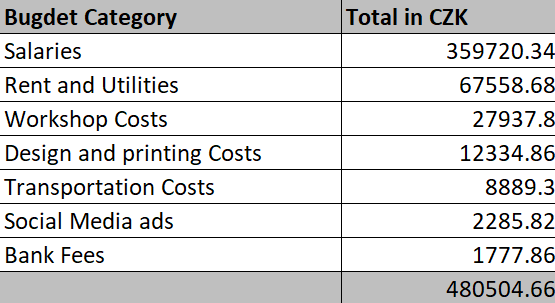
Project timeline:
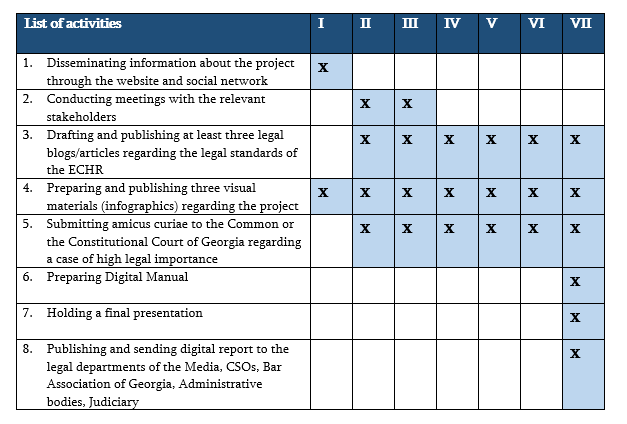
Contract
Grant agreement
|
Main objective the project Facilitating the application of the ECHR case law in national jurisdiction and advancing the standards of free speech and freedom of information.
View more →
|
| Information Integrity Coalition Steering Committee Chairman |
Georgian Information Integrity Program(GIIP) / USAID |
2023 |
$ 10,000 |
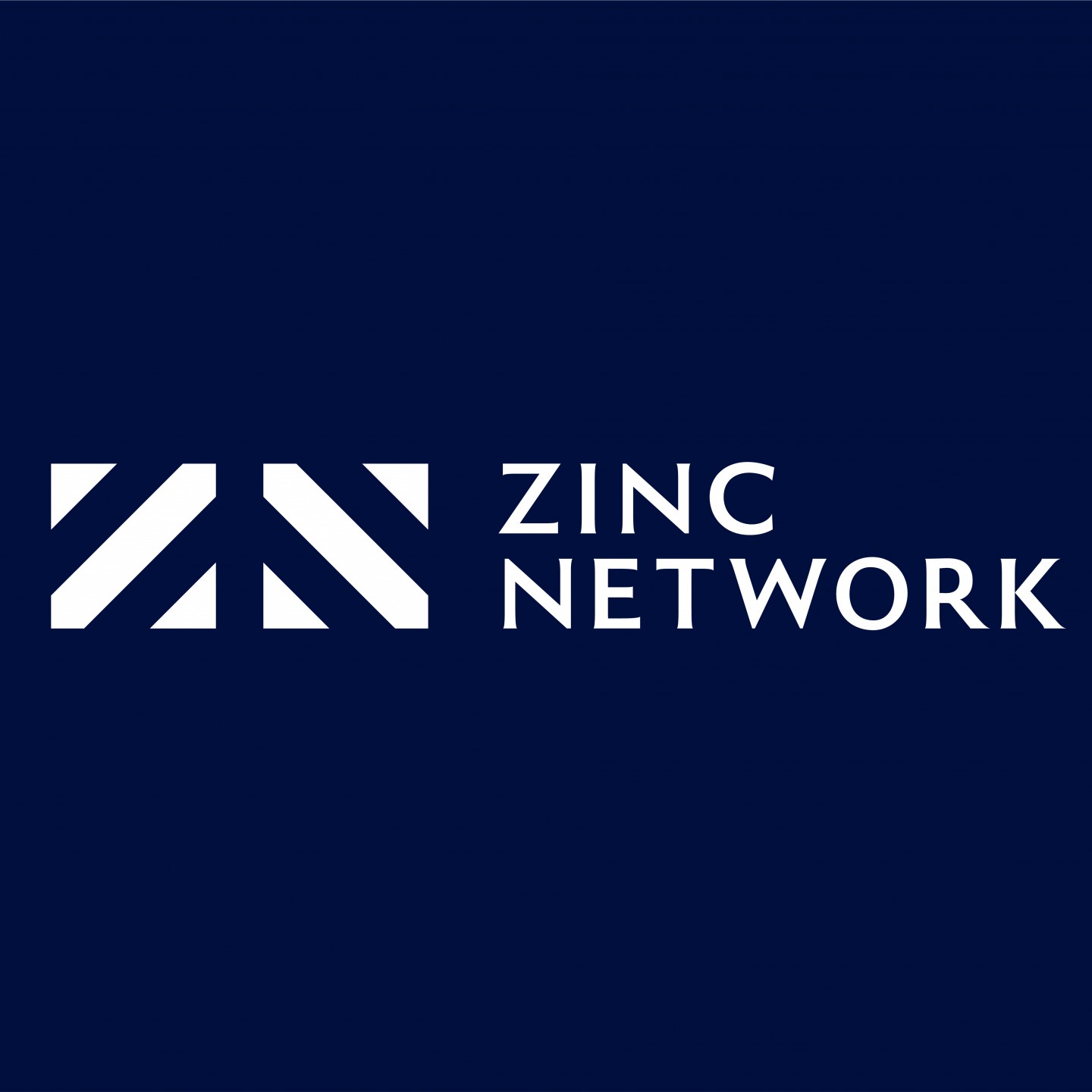
Project title: Information Integrity Coalition Steering Committee Chairman
Supported by: Georgian Information Integrity Program(GIIP) / USAID
Budget: USD 10,000
Duration: May 1, 2023 – October 31, 2023
Tasks and responsibilities:
- Assign staff member(s) with relevant background to work at least 50% of their time on the project;
- Coordinate and lead the work of the Steering Committee for the period of six months;
- Set up regular Coalition meetings to coordinate its activities, reach agreement on outstanding issues, and distribute tasks among the members.
Keep notes of the Coalition meetings, circulate those among members, and follow up implementation against decided deadlines;
- Facilitate drafting of the Coalition statements (including occasionally writing first drafts of the statements), approval and adoption of those statements by the Coalition member organizations;
- Overseeing the Coalition's joint advocacy initiatives by supporting the Coalition to identify the advocacy objectives, creating advocacy strategy and plan, and helping in delivering activities against those objectives;
- Co-organise the Information Integrity Coalition’s annual conference;
- Co-organise other events related to the coalition’s work.
Deliverables:
- Coalition work plan for the period of six months;
- Bi-monthly reports, covering the key activities of the Steering Committee and wider coalition;
- Write-ups of the events and meetings organized during the rotating management;
- Final report, covering the period of six months rotating management.
Grant agreement
|
Ensuring effective governance of the Information Integrity Coalition for a period of 6 months.
View more →
|
| Empowered Watchdog Community and Enhanced Transparency Standards for Government Accountability |
International Visegrad Fund and Ministry of Foreign Affairs of the Republic of Korea |
2023-2024 |
€ 34,990 |
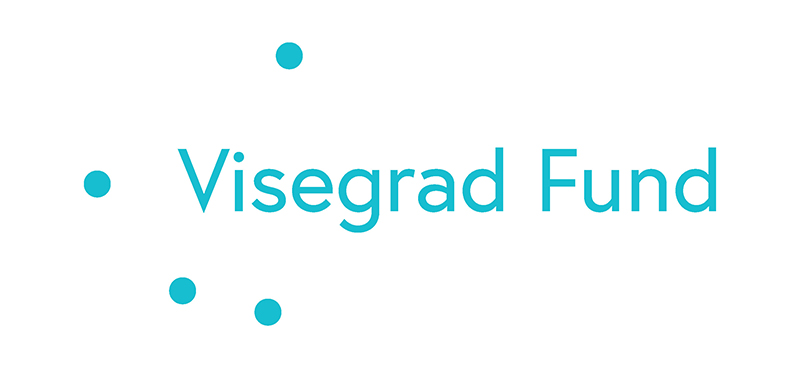 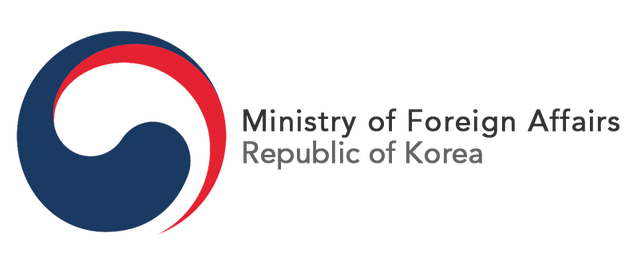
Project Title: Empowered Watchdog Community and Enhanced Transparency Standards for Government Accountability
Supported by: International Visegrad Fund and Ministry of Foreign Affairs of the Republic of Korea
Grant Number: 22310350
Budget: EUR 34,990
Duration: June 1, 2023 – June 1, 2024
Partner Organizations: KohoVolit.eu (Czech Republic and Slovakia), K-Monitor Public Benefit Association (Hungary), Citizens Network Watchdog Poland (Poland)
Background
Access to company beneficial owner (BO) data is crucial to combat international, and high-level corruption. The recent sanctions imposed on Russia for its invasion of Ukraine demonstrated the issue's importance. Georgia still needs to adopt BO standards, making it challenging for watchdog groups to monitor suspicious companies effectively. They must request data from various institutions, monitor constantly, and use various platforms for data collection. Also, they lack relevant data collection experience. As for V4 countries, as our previous joint regional study prepared under Visegrad Fund-supported project showed, even though they have implemented standards on anti-money laundering, the best international standards are not fully implemented yet. Additionally, the recent European Court of Justice ruling revoked general public access to BO. However, it confirmed access for journalists and civil society, highlighting the need for further advocacy and local context-based approaches for adequate legislation in the EU and beyond.
To scrutinize the government, access to more BO data of companies operating in Georgia is necessary, along with support for monitoring activities and advocacy for adopting BO standards, taking into account the experiences and lessons learned from the V4 countries.
Project Objectives
IDFI together with its partners, aims to a) continue advocating for BO standards through local and regional events; b) empower watchdog communities in Georgia and beyond through research, capacity building, government monitoring, and more available public data; c) map beneficial owners of the most influential/largest companies operating in Georgia and publish a comprehensive database.
Project Activities
- Workshop on Beneficial Ownership
- Training for journalists/activists/CSOs/watchdogs regarding government oversight activities
- Preparing follow-up analyses/analytical papers about beneficial ownership transparency in Georgia and V4 countries
- Regional/International Hybrid Conference on BO transparency and government accountability
- Preparing new Datasets, Mapping Beneficial owners and updating DataLab.ge with new data
- Conducting government oversight activities and preparing analytical/investigative articles
Contract
Grant agreement
|
Procejt aim is to continue advocating for BO standards through local and regional events; and empower watchdog communities in Georgia and beyond through research, capacity building, government monitoring, and more available public data.
View more →
|




























